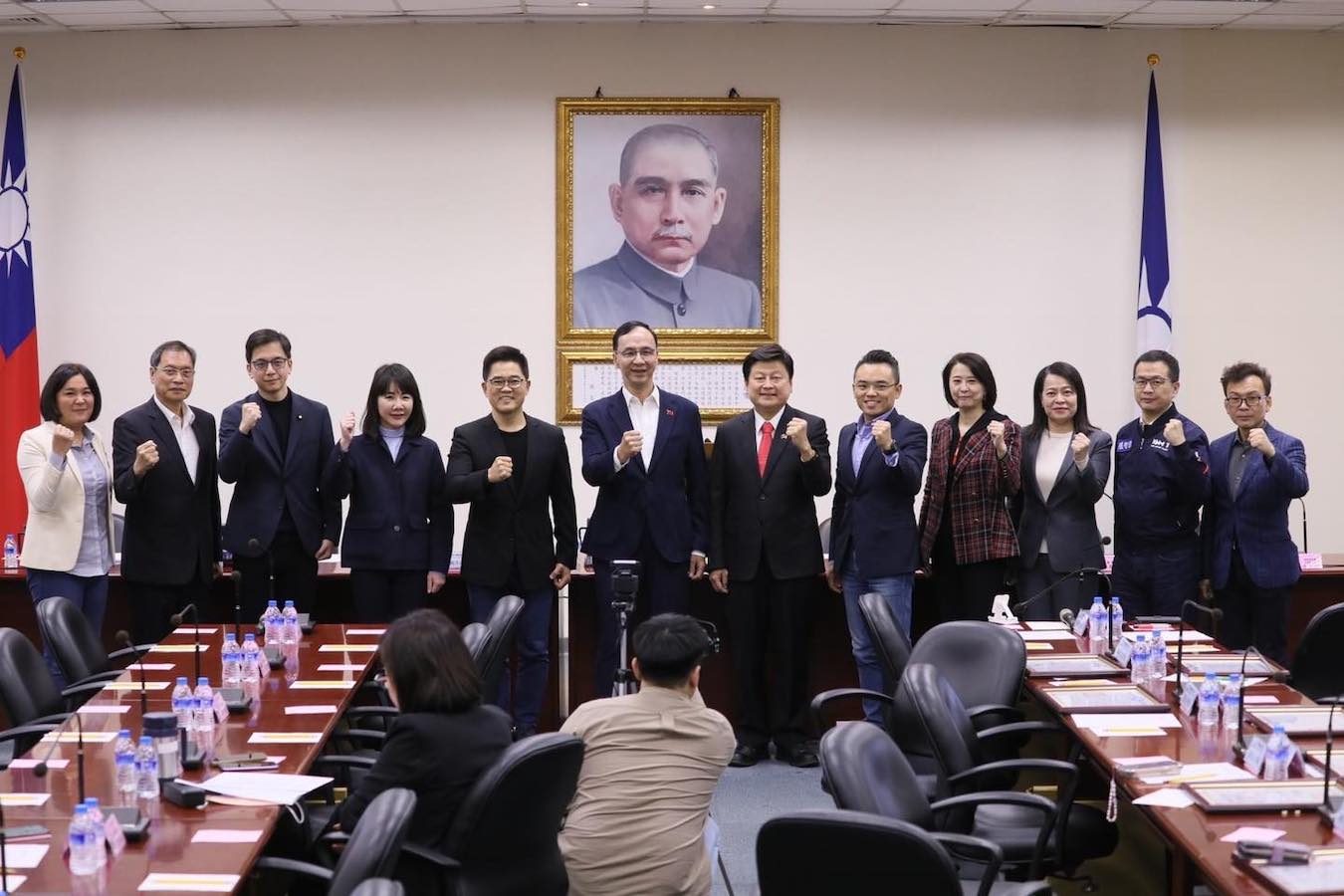by Brian Hioe
語言:
English
Photo Credit: KMT/Facebook
A RECENT SERIES of proposals from the KMT aims to expand the power of the legislature. This would allow legislators the ability to approve the appointment of officials, as well as conduct investigations of organizations, sections of government, the military, the police, and legal entities. To this extent, legislators would be granted the power to summon government officials for questioning and hold them in contempt for not complying, leading to fines of up to 300,000 NT.
The DPP has criticized the proposal, stating that it will seek an interpretation from the Constitutional Court. To this extent, the DPP has criticized the proposal as unconstitutional, in reducing the power of the judiciary in the balance of powers between the main branches of government.
The KMT seeking to expand the powers of the legislature is ironic. A decade prior, in the series of events that led to the outbreak of the 2014 Sunflower Movement, the KMT was criticized as using executive power to trample over legislative authority. This occurred through the means by which the Cross-Strait Services Trade Agreement that the movement broke out against was passed, in that the committee review of the bill was circumvented, and the bill was declared passed in less than thirty seconds–without any discussion.
Likewise, the Sunflower Movement took place at a time when former president Ma Ying-jeou was attempting to oust political rival Legislative Yuan majority speaker Wang Jinpyng from the KMT, wiretapping him and minority whip Ker Chien-ming through the use of the Ministry of Justice’s Special Investigation Division (SID). Indeed, at present, the KMT calls for the revival of the SID, and it’s being placed under the authority of the Legislative Yuan.
More generally, the KMT likely wishes to vest legislators with the powers that prosecutors currently have. Using these powers, the KMT would then seek to interfere with the Tsai administration’s operation of government, and the successive moves of the incoming Lai administration.
 Photo credit: KMT/Facebook
Photo credit: KMT/Facebook
To justify the move, the KMT is leveraging on its claims accusations that many of the DPP’s policy decisions only occurred because of political corruption, or links between the DPP and organized crime. Yet this is an adaptation to that the KMT’s current foothold on political power is primarily by way of the legislature.
Indeed, the move actually reflects the weak position of the KMT at present. After all, the KMT is proposing a permanent change to Taiwan’s division of powers. But if the KMT were to lose control of the legislature, then this would result in a potentially DPP-controlled legislature that is more powerful than before.
As the KMT has faced a number of electoral setbacks in the past decade, its ability to win presidential elections is increasingly tenuous. However, the KMT is still more able to win local elections, due to the clientelist and local patronage networks whose existence dates back to authoritarian times. This may be why the KMT has pushed ahead with the idea of increasing the powers of the legislature–indeed, if the KMT was genuinely interested in the proposal, rather than adapting to present political circumstances, there would have been a push in this direction sooner.
At the same time, one notes the potential risks. The KMT is leveraging on the pan-Blue camp’s narrow lead over the DPP in the legislature. Yet this will only be the case if the TPP continues to align with the KMT on key issues. If the TPP were to break from the KMT, the KMT’s influence over the legislature would be shakier.
To this extent, if the KMT does intend to use legislative power to question government officials or investigate them, there are dangers from the optics. The KMT was, after all, the former authoritarian party in Taiwanese politics, and actions that trigger memories of the political persecution it carried out in the past could potentially backfire. Furthermore, the DPP would be free to use the same powers granted to legislators in order to attack the KMT. In this sense, the proposal also has political risks for the KMT.

